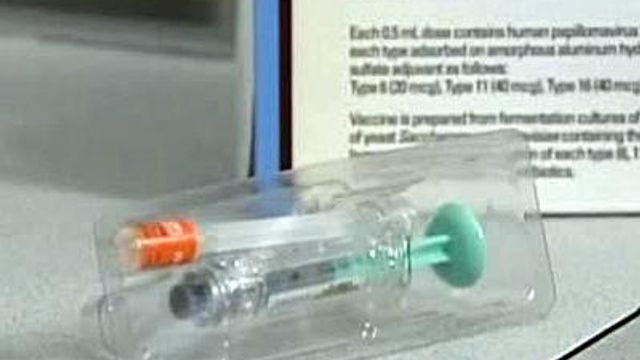Health Team
Study: Cervical cancer vaccine appears safe
A report out Tuesday found that 12,424 health problems have been reported from June 2006 to December 2008. More than 23 million doses of the Gardasil vaccine have been administered.
Posted — UpdatedCANTON, N.C. — A report out Tuesday from the Journal of American Medical Association outlines the health problems and serious complications resulting from the cervical cancer vaccine Gardasil.
Of more than 23 million doses administered in the United States, 32 people have died.
In the period studied, from June 2006 to December 2008, 12,424 reported some health problems connected to the vaccine. Of those, 6 percent, or 772, were considered serious medical conditions.
"We didn't find any unexpected findings," said Dr. Barbara A. Slade, with the U.S. Centers for Disease Control and Prevention. "While that seems like a lot of deaths, it really isn't an increase with what we've seen with other vaccines."
Hailed as a breakthrough, Gardasil exploded on the U.S. market as a way to help prevent infection from four types of human papillomavirus -- two of which cause 70 percent of cervical cancer cases.
The vaccine is usually administered in three doses in girls and women ages 9 to 26.
The CDC reports some side effects associated with the vaccine, such as fainting, pain and swelling at the injection site, headache, nausea and fever, but it has not found a common medical pattern to reports of serious adverse problems directly linked to the vaccine.
"The vaccine continues to appear to be safe," Slade said.
The study did find a higher amount of fainting and blood clots, but Slade, who also authored the study, said that does not mean that the vaccine caused the blood clots.
Still, medical experts like Dr. Daniel Smith, vice chairman of the John Theurer Cancer Center at Hackensack University Medical Center in Hackensack, N.J., say blood clots are one of the most serious side-effects and should be evaluated ahead of the vaccine.
"You should discuss these risks with your patient and do a risk assessment," he said.
Copyright 2024 by Capitol Broadcasting Company. All rights reserved. This material may not be published, broadcast, rewritten or redistributed.






